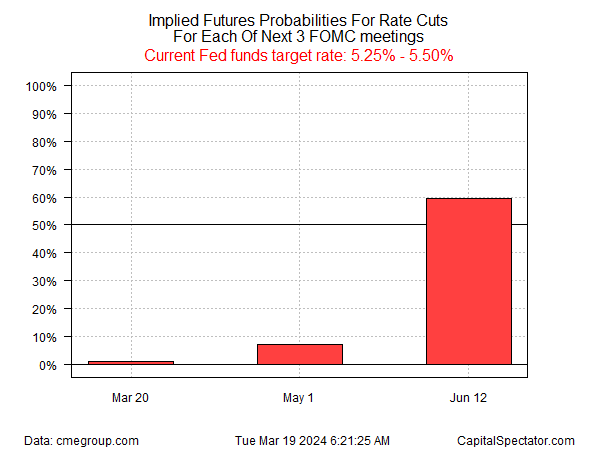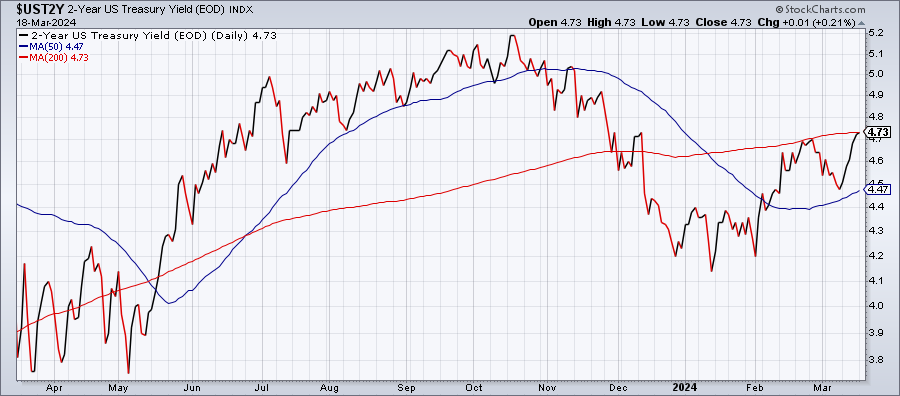Analysts are debating if last week’s sticky inflation news is the death knell for a June cut in interest rates by the Federal Reserve. This much is clear: the recent run of news isn’t encouraging for anticipating that a dovish turn for monetary policy is imminent.
On Thursday the government reported that was hotter than expected. Two days earlier, the Bureau of Labor Statistics advised that the rose more than expected.
The one-two punch of these reports has further dented confidence that the Fed will soon start cutting interest rates.
There are signs that the US economic growth is slowing, but not enough to trigger concern that the Fed needs to cut rates to counteract the threat of rising recession risk, which remains low at the moment.
Using Fed funds futures as a proxy for market sentiment indicates a roughly 60% probability that the central bank cuts at its June 12 meeting. That’s down from 70% two weeks ago.
Looking to the July FOMC meeting, the of a rate cut rises by 77%, but a growing number of analysts are skeptical about the timing and, in some cases, the likelihood for a rate cut in 2024.
“The Federal Reserve should not be in a race to cut rates,” says Joseph Davis, Vanguard’s global chief economist.
He tells The New York Times that the economy has been stronger than expected so cutting too soon may allow inflation to run hotter than the Fed wants in 2025. “We have a growing probability that they don’t cut rates at all this year.”
Jim Bianco of Bianco Research agrees:
“I’m in the camp that the Fed does not change policy in the summer of an election year,” he predicts via CNBC.
If they don’t pull the trigger by June, then it’s November [or] December at the earliest — only if the data warrants it. And, right now, the data isn’t warranting it.”
The US Treasury market has been leaning toward that view lately. Notably, the policy-sensitive closed at 4.73% yesterday (Mar. 18), the highest since December.
As a result, this key rate has taken back all of 2024’s decline, which was fueled by rate-cut expectations that have increasingly been thrown into doubt as the year unfolded.

Although the Fed is widely expected to leave rates unchanged at tomorrow’s FOMC (Mar. 20), investors will be keenly poring over the policy statement, new economic projections, and chairman Powell’s for a fresh round of clues.
“The Fed will keep their forward guidance unchanged while stressing that they need further evidence that inflation is on a sustainable path toward their 2% target before cutting interest rates,” predicts Ryan Sweet, chief U.S. economist with Oxford Economics, in a research note on Monday.

